News
4 Reasons Your Hydraulic Machine Fails
Welcome to Chuangxin Automation!
I’m delighted to have you here! Before exploring our world of cutting-edge automation solutions, let’s stay connected—follow us on social media for industry insights, expert discussions, and real-time updates. Here’s where you can reach us:
🌐 Facebook: Shandong Chuangxin Automation Equipment Co., Ltd
Let’s innovate together! Whether you’re here for technical expertise, product updates, or collaborative opportunities, I hope you find our content valuable and inspiring. Dive in and discover the future of automation with us!
Happy browsing! 🚀
Table of Contents
Introduction
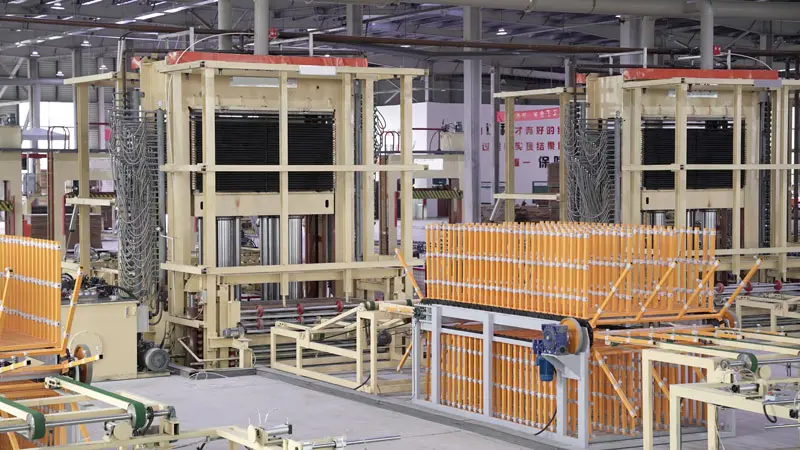
In modern plywood production lines, the hydraulic machine is more than just a tool—it is the backbone of productivity and consistency. Whether used for cold pressing, hot pressing, or edge gluing, these machines provide the critical force necessary to manufacture high-quality plywood with uniform pressure distribution. However, when a hydraulic machine fails, the consequences can be serious: production halts, output suffers, and repair costs escalate.
Understanding why a hydraulic machine fails is essential for both preventing downtime and extending equipment life. This article explores the four most common reasons for failure in plywood hydraulic machines, providing valuable insights and maintenance strategies for plant managers, operators, and maintenance engineers alike.
We’ll also examine practical maintenance practices, answer frequently asked questions, and offer a handy comparison table to help identify signs of failure early. If you rely on a hydraulic machine in your plywood factory, this guide will help ensure it stays running reliably.
1. Poor Maintenance Practices That Lead to Hydraulic Machine Failure
One of the most significant contributors to hydraulic machine failure—especially in plywood production facilities—is the lack of consistent, structured maintenance. A hydraulic machine is a high-pressure system that operates under extreme thermal and mechanical stress. When maintenance protocols are neglected or inconsistently applied, small performance issues can quickly evolve into costly breakdowns that disrupt workflow and reduce product quality.
In the plywood industry, where hydraulic presses are constantly cycling under high loads to bond layers of veneer, maintenance becomes even more critical. The operating environment often includes high humidity, fine wood dust, and glue vapors—factors that make the internal components of a hydraulic machine more vulnerable to contamination and accelerated wear.
Common Maintenance Failures
- Dirty Hydraulic Oil: Contaminated oil can damage seals, clog valves, and reduce pressure efficiency. In environments where glue and wood dust are prevalent, the oil degrades faster and becomes abrasive.
- Delayed Filter Changes: Filters are the first line of defense against particles entering the system. If filters are not replaced regularly, their efficiency declines, and contaminants begin circulating freely within the hydraulic system.
- Inadequate Lubrication: Proper lubrication helps reduce friction between moving parts. Without it, heat builds up inside the system, causing seals to harden and fail while increasing the wear rate on metal surfaces.
- Ignoring Manufacturer’s Schedule: Every hydraulic machine comes with a detailed maintenance schedule for good reason. Failure to follow recommended service intervals leads to the unchecked accumulation of wear and the likelihood of hidden damage.
In plywood manufacturing, particles like glue residue and wood dust can find their way into the hydraulic system during daily operations. If the system is not regularly flushed and cleaned, these contaminants can build up and cause damage to cylinders, pumps, and valves. Many factories still overlook the importance of hydraulic fluid analysis—a low-cost, high-value process that can identify water contamination, metal fatigue, and other early warning signs long before any physical symptoms appear. By the time external leakage or vibration becomes noticeable, internal damage may already be extensive.
2. Hydraulic Component Wear and System Fatigue
Another key factor in hydraulic machine failure is the gradual wear of internal components caused by heavy workloads and repetitive stress cycles. In the plywood industry, where precision is required across every press cycle, hydraulic systems are expected to deliver consistent performance day in and day out—often for thousands of hours per year.
Each operation, whether it’s pressing a new plywood sheet or retracting the press plate, places significant force on the system’s mechanical elements. Over time, the build-up of small amounts of wear across many components results in larger operational problems, often with little to no early warning.
Critical Parts Prone to Wear
- Hydraulic Cylinders: These are constantly extending and retracting under pressure. Seals and pistons degrade over time.
- Pumps: Repeated cycling under load wears out gears, vanes, or pistons in the hydraulic pump.
- Valves: Directional, pressure, and flow valves can get stuck due to wear or contamination.
- Hoses and Fittings: High-pressure operations lead to material fatigue and potential leakage.
Plywood pressing machines often work in high-heat environments, which can accelerate the degradation of seals and rubber parts. Over time, even the strongest components begin to lose their precision, leading to loss of pressure, reduced pressing quality, and eventually, complete system breakdown.
3. Hydraulic Oil Quality and Contamination in Plywood Machinery
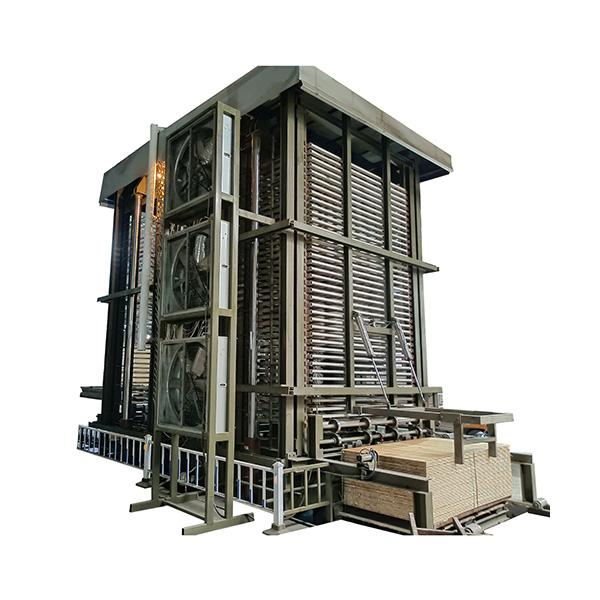
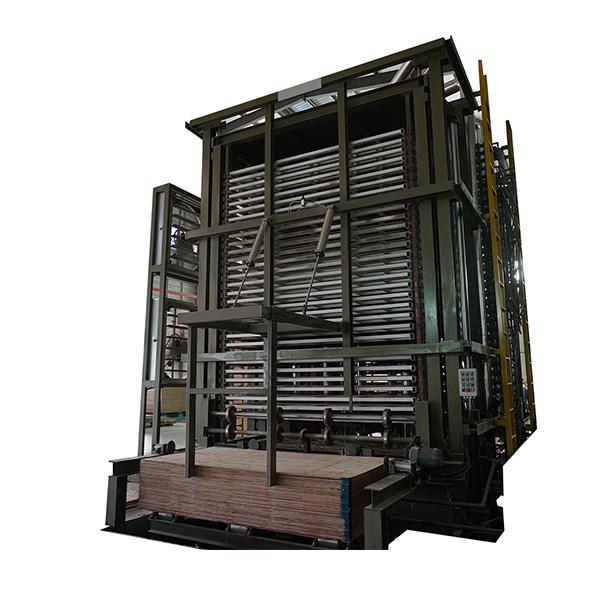
Hydraulic oil is the lifeblood of any hydraulic machine. In plywood manufacturing, where machines operate continuously, the oil not only transmits power but also helps to cool, lubricate, and protect the entire system.
However, oil quality tends to degrade over time, especially under thermal stress and high-pressure loads. Contaminants such as water, air, metal shavings, and glue particles can alter the chemical balance of the fluid, making it less effective and even corrosive.
Impacts of Contaminated Hydraulic Oil
| Contaminant | Effect on Hydraulic Machine | Common Source in Plywood Plants |
|---|---|---|
| Water | Reduces lubrication, causes rust | Condensation, seal leaks |
| Air Bubbles | Causes cavitation, reduces pressure | Faulty pump or low fluid levels |
| Particles | Damages valves, blocks orifices | Wood dust, glue, worn parts |
| Oxidation | Leads to sludge, overheating | Old oil, poor storage conditions |
Routine oil analysis and the use of proper filtration systems are essential in preventing the buildup of these contaminants. Many hydraulic machine failures can be traced back to operators using the wrong type of oil, mixing incompatible fluids, or extending oil change intervals beyond the recommended period.
4. Incorrect Operation and Overloading of the Hydraulic Machine
Operator behavior has a significant impact on the health of a hydraulic machine. In plywood production lines, even small mistakes in operating pressure settings or load capacity can shorten equipment lifespan dramatically.
Common Operator Mistakes
- Overloading the Press: Exceeding pressure limits stresses the frame, seals, and cylinders.
- Improper Pressure Adjustment: Running the machine at high pressure unnecessarily wears out components faster.
- Ignoring Warning Alarms: Failing to respond to overheating or low-pressure alerts can lead to severe damage.
- Untrained Staff: Operators unfamiliar with the machine may skip warm-up procedures, apply sudden force, or misuse controls.
Plywood hydraulic machines require careful calibration depending on the thickness and type of board being pressed. Repeated overloading can lead to misalignment in the press bed or warping of the platen, both of which are expensive to repair.
Even when not catastrophic, improper operation results in inconsistent plywood quality, creating ripple effects across product delivery timelines and customer satisfaction.
Preventive Maintenance Tips to Extend Hydraulic Machine Life
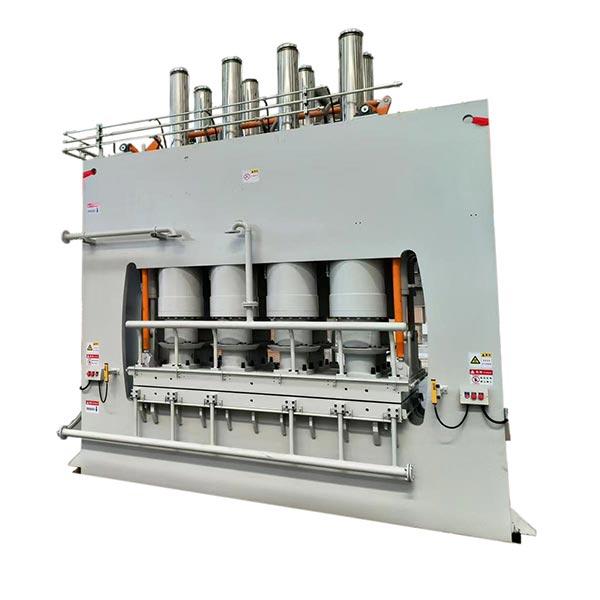
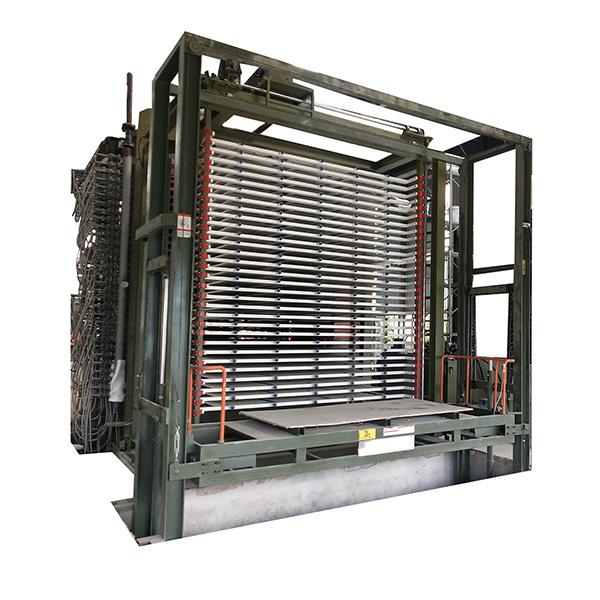
Preventing failure doesn’t require extraordinary effort—it just takes discipline and consistency. Here are a few best practices to ensure the longevity of your hydraulic machine:
- Daily Inspections: Check for leaks, unusual noises, and temperature spikes.
- Regular Oil Analysis: Test fluid condition and contamination levels quarterly.
- Follow OEM Guidelines: Stick to service intervals and approved parts.
- Train Operators: Ensure every user understands the system and its controls.
- Use Clean Oil and Proper Filters: Invest in quality to save future costs.
By implementing these preventive steps, plywood manufacturers can reduce the risk of unplanned downtime and improve overall production efficiency.
FAQ
What is the most common reason a hydraulic machine fails?
Contaminated or degraded hydraulic oil is one of the leading causes of failure. In plywood environments, dust and glue particles can quickly compromise oil quality, damaging components and reducing system efficiency.
How often should I replace the hydraulic oil?
It depends on usage, but for continuous plywood operations, it’s advisable to change oil every 1000–1500 operating hours, or sooner if contamination is detected through testing.
Can I use general-purpose hydraulic oil in plywood machinery?
Not recommended. Use oil that meets the viscosity, oxidation resistance, and thermal stability requirements specified by your hydraulic machine manufacturer.
What happens if I overload my hydraulic press regularly?
Overloading can lead to warped press plates, broken seals, and eventual cylinder failure. It also compromises plywood quality, resulting in product waste.
How do I know if a hydraulic valve is failing?
Look for signs like slow or jerky movements, inconsistent pressure, or inability to maintain force. If the valve is blocked or worn out, it needs to be cleaned or replaced promptly.
Conclusion
Plywood production demands precision, power, and endurance. When a hydraulic machine fails, it’s more than just a mechanical issue—it’s a production bottleneck that affects every stage of the supply chain. By understanding the four key causes of failure—poor maintenance, component wear, oil contamination, and incorrect operation—manufacturers can take proactive steps to keep equipment running reliably.
With consistent upkeep, operator training, and regular fluid monitoring, a well-maintained hydraulic machine can provide years of efficient service. Whether you run a small plywood shop or a full-scale manufacturing line, ensuring machine health is an investment in long-term productivity and profitability.
Latest News
December 1, 2025
Improve production results with a wood veneer vacuum press—your solution…
November 27, 2025
Shandong Chuangxin Automation Equipment Co., Ltd. manufactures high-precision plywood DD…
November 27, 2025
Discover 6 common pitfalls in Cold Press Machine Commercial and…
